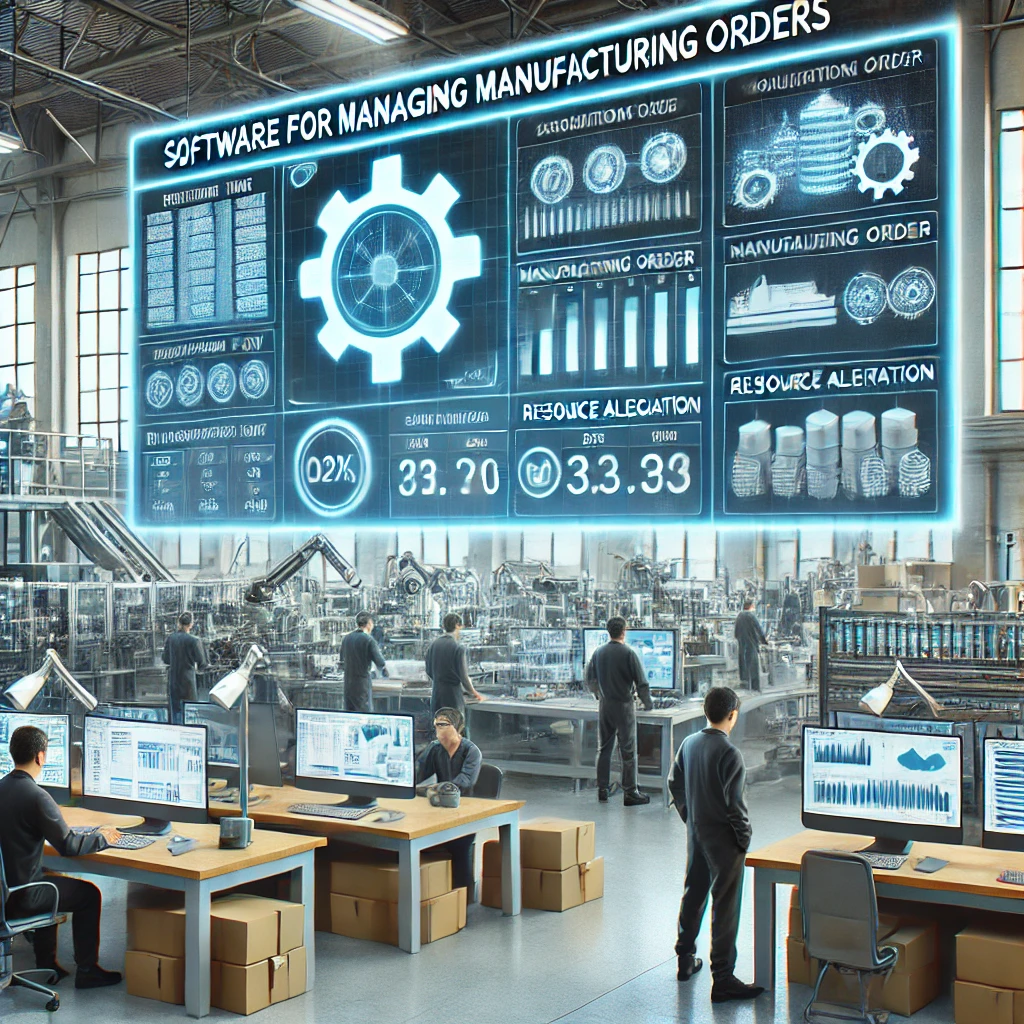In the manufacturing world, routing refers to the sequence of operations that a product must go through from raw materials to finished goods. Efficient routing is essential for optimizing production processes, minimizing downtime, and ensuring that resources such as labor, materials, and machinery are used effectively. ERP for manufacturing routing provides manufacturers with the tools to automate and optimize routing processes, ensuring that production workflows are streamlined, and operations run smoothly.
In this article, we’ll explore how ERP for manufacturing routing works, its key features, and why it’s essential for modern manufacturers.

What is Manufacturing Routing?
Manufacturing routing is the process of defining the steps, resources, and operations required to produce a product. It involves determining the most efficient path for materials and components to move through the production line. This includes detailing every step of the production process, such as machining, assembly, inspection, and packaging.
With proper routing, manufacturers can:
- Optimize production workflows to reduce lead times and increase efficiency.
- Track the use of resources such as labor and machinery.
- Minimize production delays by ensuring that materials and resources are available when needed.
How ERP for Manufacturing Routing Works
When integrated with manufacturing processes, an ERP system automates the entire routing process, ensuring that each job follows the most efficient production path. Here’s how ERP for manufacturing routing works:
1. Defining Routing Paths
ERP systems allow manufacturers to define detailed routing paths for each product. These paths include every operation, the sequence in which they should occur, the resources required, and the estimated time for each step.
2. Automating Workflows
Once routing paths are defined, the ERP system automates the scheduling of jobs, ensuring that each production step is completed in the correct order. This eliminates manual intervention and reduces the risk of errors.
3. Resource Allocation
ERP systems track the availability of resources, such as labor, materials, and machinery, and ensure that they are allocated efficiently for each routing step. This helps manufacturers avoid delays and maximize productivity.
4. Real-time Monitoring
ERP systems provide real-time visibility into the status of each production job. Manufacturers can monitor progress, identify potential bottlenecks, and make adjustments to routing paths as needed to ensure that production stays on schedule.
5. Optimizing Production Efficiency
By automating routing and providing real-time insights into production processes, ERP systems help manufacturers optimize efficiency, reduce waste, and improve overall production performance.
Key Features of ERP for Manufacturing Routing
When selecting an ERP system with routing capabilities, it’s important to look for features that provide full control over the routing process. Here are some key features to consider:
1. Customizable Routing Paths
ERP systems allow manufacturers to create and customize routing paths for different products. This flexibility ensures that each product follows the most efficient production path based on its specific requirements.
2. Real-time Resource Tracking
The system tracks the availability and usage of resources, such as materials, labor, and machinery, ensuring that resources are used effectively and efficiently.
3. Production Scheduling Integration
ERP systems integrate with production scheduling tools, allowing manufacturers to plan and schedule production jobs based on real-time data. This ensures that routing paths are followed without delays.
4. Automated Workflows
By automating the routing process, ERP systems reduce manual errors and ensure that production workflows run smoothly.
5. Performance Reporting
ERP systems generate detailed reports on production performance, resource utilization, and workflow efficiency. This data helps manufacturers identify areas for improvement and optimize their operations.
Benefits of ERP for Manufacturing Routing
Implementing an ERP system for manufacturing routing offers several benefits that can improve production efficiency and reduce costs:
1. Increased Productivity
By automating routing processes and optimizing workflows, ERP systems help manufacturers increase productivity and reduce downtime. This leads to faster production times and lower operational costs.
2. Better Resource Utilization
ERP systems track the availability and usage of resources, ensuring that labor, materials, and machinery are used efficiently. This reduces waste and ensures that resources are allocated where they are needed most.
3. Reduced Lead Times
With optimized routing paths and real-time monitoring, manufacturers can reduce lead times and ensure that production jobs are completed on schedule.
4. Improved Production Planning
ERP systems provide manufacturers with real-time insights into production progress and resource usage, helping them create more accurate production schedules and plan for future production needs.
How Syncratech’s ERP Solutions Can Help with Manufacturing Routing
At Syncratech, we offer customized ERP solutions designed to help manufacturers optimize their routing processes, improve efficiency, and ensure that production runs smoothly.
Here’s how our ERP for manufacturing routing can benefit your business:
- Automated routing to optimize workflows and reduce manual errors.
- Real-time resource tracking to ensure that materials, labor, and machinery are used efficiently.
- Production scheduling integration to plan and schedule jobs accurately.
- Detailed performance reporting to track progress and identify areas for improvement.
- Seamless integration with other systems, such as inventory management and quality control.
To learn more about how our ERP solutions can help with manufacturing routing, visit our homepage today.
FAQs About ERP for Manufacturing Routing
1. How does ERP for manufacturing routing improve production efficiency?
ERP systems automate routing processes, providing manufacturers with real-time data on production progress and resource usage. This helps optimize workflows and reduce delays, improving overall efficiency.
2. Can ERP systems with manufacturing routing integrate with other systems?
Yes, ERP systems with manufacturing routing integrate with other systems, such as inventory management and quality control, providing manufacturers with a unified view of their operations.
3. How does manufacturing routing reduce production lead times?
By optimizing routing paths and tracking resources in real time, ERP systems help manufacturers reduce bottlenecks and ensure that production jobs are completed on schedule, leading to shorter lead times.
4. What are the key benefits of using ERP for manufacturing routing?
The key benefits of using ERP for manufacturing routing include increased productivity, better resource utilization, reduced lead times, and improved production planning.
Final Thoughts
For manufacturers looking to optimize their operations and improve efficiency, ERP for manufacturing routing is an essential tool. By automating routing processes and providing real-time insights into production workflows, ERP systems help manufacturers streamline operations, reduce costs, and ensure that production goals are met.
At Syncratech, we offer customized ERP solutions designed to help manufacturers optimize their routing processes and improve overall production efficiency. To learn more about how our ERP can benefit your business, visit our homepage today.


